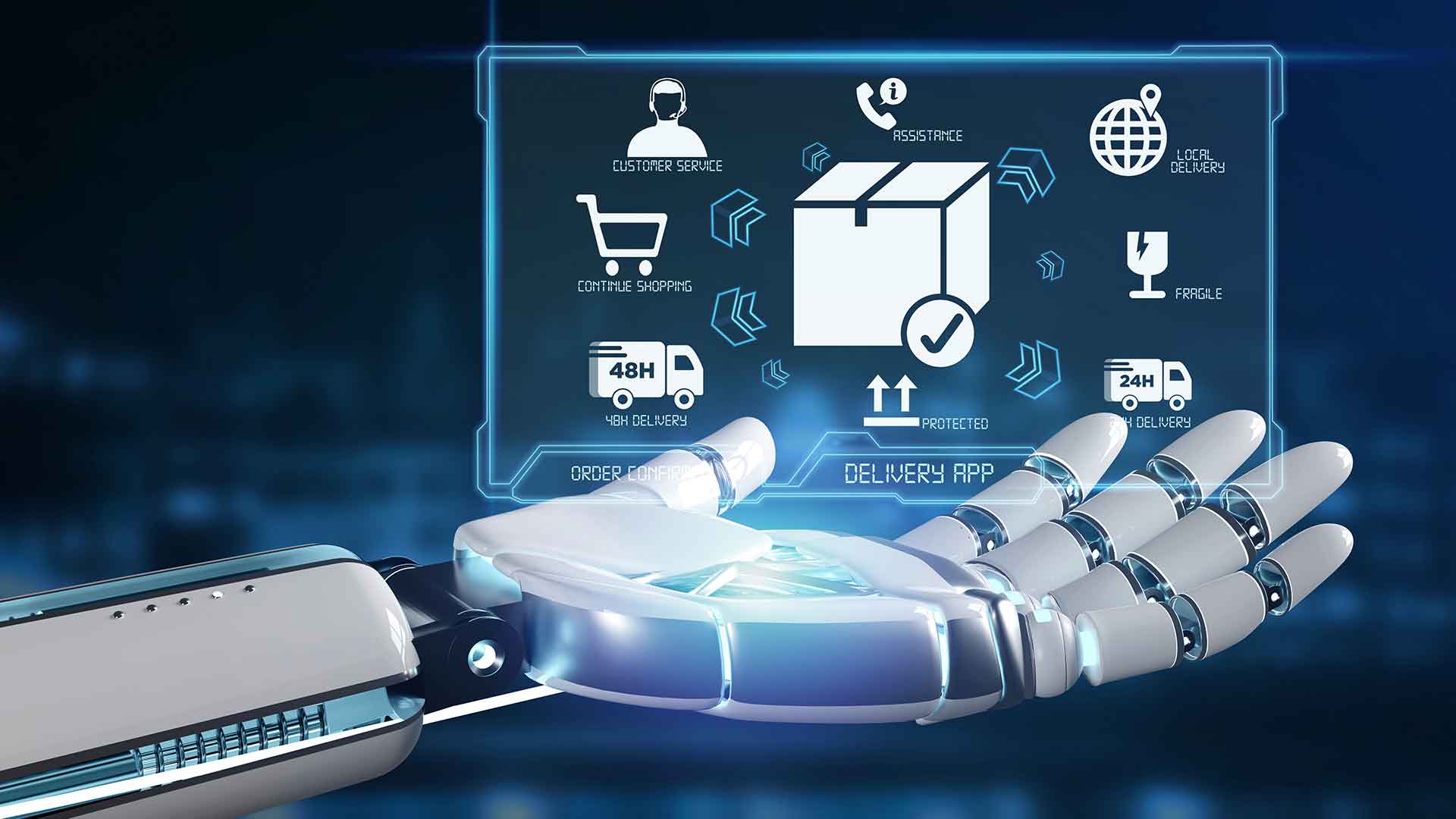In 2025, artificial intelligence (AI) continues to shape the way businesses operate, with retail being one of the most significantly impacted sectors. The retail industry has always been customer-centric, but with advancements in AI, businesses now have the tools to elevate customer experiences like never before. From personalized shopping journeys to real-time inventory management and predictive analytics, AI in retail automation is revolutionizing how retailers engage with customers and streamline their operations.
Retail automation, powered by AI, has not only enhanced operational efficiency but also provided businesses with the ability to anticipate customer needs. This shift towards AI-driven solutions has fostered deeper connections between brands and consumers, leading to improved customer satisfaction and loyalty. As we look ahead to 2025, it’s clear that AI will continue to play an essential role in the transformation of retail, providing businesses with more ways to optimize their services and meet the evolving expectations of modern consumers.
AI-Powered Personalization: Crafting Unique Customer Journeys
Personalization has always been a cornerstone of effective retail marketing. Consumers today expect tailored experiences when interacting with brands, and AI is the driving force behind this level of customization. Through AI-driven algorithms, retailers can analyze vast amounts of customer data to understand individual preferences, behaviors, and purchasing patterns.
By using AI in retail, businesses can create highly personalized shopping experiences, offering recommendations that are not only based on past purchases but also on browsing behavior, time of day, and even geographical location. For example, a customer who frequently buys athletic wear can be shown new arrivals or discounts for similar products when they visit an online store or browse through a mobile app. Furthermore, AI-powered chatbots and virtual assistants can provide real-time assistance, answering queries and guiding customers through their shopping journey, further enhancing the user experience.
By incorporating AI into their personalization strategies, retailers can increase customer satisfaction, drive repeat business, and ultimately foster long-term loyalty. This dynamic approach to personalization ensures that customers feel understood and valued, which translates into better retention and higher conversion rates.
Predictive Analytics: Staying Ahead of Consumer Needs
Predictive analytics, a key aspect of AI in retail automation, helps businesses anticipate customer needs before they even arise. By leveraging historical data, AI algorithms can predict purchasing trends, stock levels, and customer demand, enabling retailers to make proactive decisions that improve inventory management and streamline supply chains.
In 2025, predictive analytics will enable retailers to offer even more accurate product recommendations and promotions. For example, AI can forecast which products are likely to be in high demand based on seasonality, regional preferences, or upcoming events. This information allows businesses to adjust their inventory accordingly, ensuring that popular items are always in stock and available for purchase. Moreover, by predicting customer buying behaviors, AI can help retailers create targeted marketing campaigns that are more likely to resonate with their audience.
Additionally, AI can help retailers identify potential gaps in their product offerings, providing valuable insights into areas where new products or services might be introduced to meet customer needs. By using predictive analytics, businesses can stay ahead of market trends, optimize their product assortments, and deliver better customer experiences.

AI-Driven Inventory Management: Streamlining Retail Operations
Efficient inventory management is crucial to the success of any retail business. With AI-powered automation, businesses can optimize inventory levels, reduce waste, and improve product availability. In 2025, AI will continue to play a key role in inventory management by providing real-time data on stock levels and consumer demand.
AI can analyze purchasing patterns to help businesses predict when and where products are likely to sell out, ensuring that retailers can restock popular items before they run low. This level of foresight reduces the risk of overstocking or understocking, which can lead to lost sales or excessive markdowns. In addition, AI can also identify slow-moving products, allowing businesses to take action to clear excess inventory before it becomes a problem.
Moreover, AI-powered systems can integrate with supply chain management tools to ensure that products are delivered efficiently and on time. Retailers can track shipments in real time and optimize routes to reduce delivery delays, ultimately improving the customer experience and ensuring that products are available when customers need them.
AI-Enhanced Customer Support: Real-Time Assistance and Issue Resolution
One of the most significant advancements in AI-powered retail automation is the ability to provide customers with real-time support through AI-driven chatbots and virtual assistants. These AI-powered tools are designed to handle customer inquiries, resolve issues, and guide customers through their shopping experience 24/7. By automating customer support, retailers can reduce wait times, provide quicker resolutions, and deliver a seamless experience for consumers.
AI chatbots can assist with a wide range of tasks, from answering frequently asked questions to helping customers track their orders, process returns, or locate specific products in-store. These virtual assistants are powered by natural language processing (NLP) algorithms, enabling them to understand and respond to customer queries in a conversational manner. In 2025, advancements in NLP will allow chatbots to become even more sophisticated, providing more accurate and nuanced responses that mimic human-like interactions.
By offering instant, AI-powered customer support, retailers can improve customer satisfaction, reduce the workload on human customer service agents, and ensure that customers feel valued and supported throughout their shopping journey.
AI in Omnichannel Retail: A Seamless Shopping Experience Across Platforms
As omnichannel retail continues to grow, AI will be instrumental in ensuring a seamless and integrated experience across various shopping platforms, including brick-and-mortar stores, e-commerce websites, mobile apps, and social media channels. AI can help retailers synchronize customer data across all touchpoints, creating a unified view of each customer and enabling personalized experiences regardless of the platform.
For example, AI can track a customer’s browsing behavior on an online store and then offer personalized promotions when they visit a physical store. Similarly, if a customer abandons their cart online, AI can send a targeted email or push notification to encourage them to complete their purchase, offering tailored discounts or product recommendations.
By integrating AI into their omnichannel strategies, retailers can provide a seamless and consistent shopping experience, helping to bridge the gap between online and offline shopping. This approach enhances customer satisfaction and encourages repeat business, ultimately driving growth for the retailer.
AI in Retail Automation and the Future of Business
Looking ahead to 2025, the role of AI in retail automation will only continue to expand, offering new opportunities for businesses to optimize their operations and enhance customer experiences. As AI technology evolves, retailers will have access to more sophisticated tools and insights that will enable them to stay ahead of customer trends and deliver personalized, efficient service across all touchpoints.
AI-driven solutions, such as predictive analytics, personalized recommendations, and real-time customer support, are poised to reshape the retail landscape, helping businesses streamline operations, enhance their marketing efforts, and improve customer satisfaction. For startups and established businesses alike, embracing AI-powered retail automation will be essential for staying competitive in an increasingly dynamic and customer-centric market.
To stay ahead of the curve, retailers must continue to invest in AI technologies and leverage data-driven insights to create more meaningful and personalized customer experiences. In doing so, they will position themselves for success in the ever-evolving retail landscape of 2025 and beyond.
For more insights into the latest business trends and digital marketing strategies that are shaping the retail landscape, check out our other articles, including the AI and automation innovations driving change in the industry.

